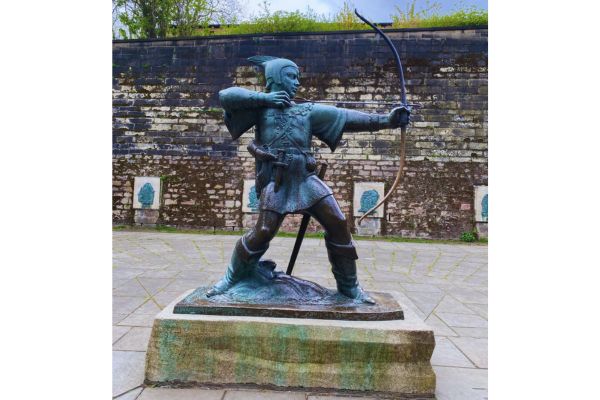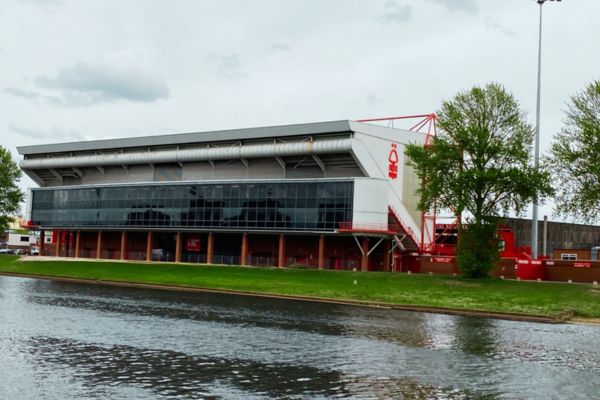“Come on Forest!! Come on Forest!!”
A sea of red erupts — shirts, scarves, hats — all bouncing in celebration. On the pitch, a club legend in red has just fired home what looks to be the winner. Fans near the front stretch over the hoardings, reaching out in joy. Stewards in high-vis help gently pry the striker away from the hugging arms.
He steps back, soaking it all in — the chaos, the joy, the sound of thousands in unison. He lifts his arm, grabs the badge on his chest — a tree with the word Forest underneath — kisses it, and the roar gets even louder.
“We love you, Forest, we do…”
The scene is the City Ground, home of Nottingham Forest Football Club — or, as some commonly call them, Notts Forest. But for anyone new to the club, hearing fans chant “Forest” and seeing a tree on the badge might spark a simple question:
Why is this team called Nottingham Forest?
Nottingham’s Legendary Forest Connection
For centuries, Nottingham has been tied to the legend of Robin Hood — the outlaw who robbed from the rich and gave to the poor, and who, alongside his Merry Men, famously hid out in Sherwood Forest.
That forest is real. And so is Nottingham’s pride in its leafy, rebellious past. There’s even a statue of Robin Hood in the city centre, standing as a nod to its most famous folk hero.

But to understand how that connects to the football club, we need to go back to where it all began.
The Birth of a Club
In 1865, a group of shinty players — a stick-and-ball sport similar to hockey — met at the Clinton Arms pub in Nottingham. After a few drinks (and perhaps sensing that football was the sport of the future), they agreed to form a team:
Nottingham Forest Football Club.
At the same meeting, they chose their colours: red, inspired by the Italian revolutionary Giuseppe Garibaldi, whose followers were famous for wearing bold red shirts.
But what about the name?
From the Forest, Literally and Symbolically

While the name “Forest” directly came from the Recreation Ground, it sits on land historically part of Sherwood Forest, and the city of Nottingham is deeply connected to Robin Hood lore. The Robin Hood connection is more symbolic than literal in the club’s naming — but it is part of the broader mythos.
So the club’s name, Forest, came from both the place they played and the identity of the city itself.
Forest by Name, Forest by Nature

From local parkland to legendary forest, the name stuck — and grew.
Nottingham Forest (or simply “Forest”) became one of English football’s most recognisable clubs. Under Brian Clough, they even went on to become two-time European champions, exporting the word Forest far beyond England’s borders.
Still wondering why there’s a tree on the badge that striker kissed?
Check out our post:
Why There’s a Tree on the Nottingham Forest Badge
